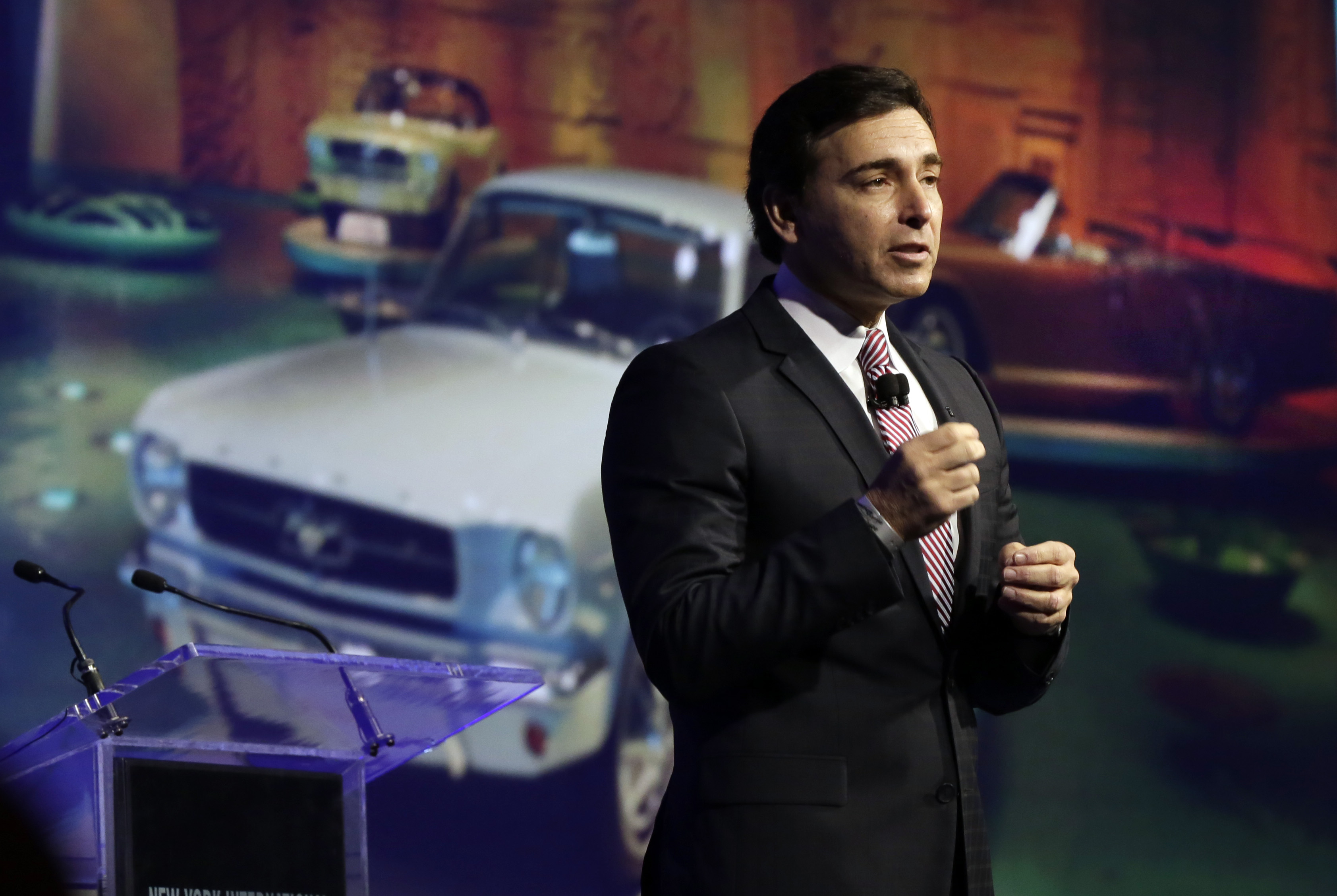Ford's CEO shake-up
Mark Fields led the 114-year-old company to its most profitable year ever in 2015. Now he's out. What happened?

A free daily email with the biggest news stories of the day – and the best features from TheWeek.com
You are now subscribed
Your newsletter sign-up was successful
The smartest insight and analysis, from all perspectives, rounded up from around the web:
"What looks like success can turn upside down quickly in Detroit these days," said Bill Vlasic at The New York Times. Ford Motor Co., the only U.S. automaker to avoid bankruptcy in the 2008 financial crisis, ousted CEO Mark Fields this week in a surprise shake-up. Fields had been with Ford for 28 years, the last three as CEO, and he led the 114-year-old company to its most profitable year ever in 2015, when it made nearly $11 billion — a figure it nearly matched last year. But investors have become convinced that Ford isn't moving fast enough "to develop the vehicles of the future." They're worried that Silicon Valley has stolen Detroit's mantle of automotive innovation, thanks to disruptive technologies like ride-hailing apps and self-driving cars. Even though Ford sells more vehicles in a month than electric-car maker Tesla sells in a year, Tesla is "now valued more highly"; Ford's stock, meanwhile, has fallen nearly 40 percent since 2014. For decades, automakers were "judged on how many vehicles they could manufacture and sell at a profit." As Fields' ouster makes clear, expectations have changed.
Fields' departure is "only the opening act in a long-running drama that will roil automakers for many years to come," said Russ Mitchell at the Los Angeles Times. Their challenge will be to try to keep up with the pace of technological change, while still selling enough cars and trucks to stay in the black. And there's little room for error. After seven years of gains, U.S. auto sales are now beginning to plateau. Ford's new CEO, Jim Hackett, has been tasked with that tough juggling act, said Jeff Green, Keith Naughton, and Jamie Butters at Bloomberg. Hackett "spent most of his career running a furniture business," so he might seem an odd choice to lead the company in such tumultuous times. But he has gained a reputation as a turnaround artist and visionary thinker. While CEO of the office furniture company Steelcase, Hackett pioneered the open office plans that are ubiquitous today, and cultivated close relationships with many Silicon Valley CEOs. He also revitalized the football program at the University of Michigan during a short stint as athletic director — no easy task.
The Week
Escape your echo chamber. Get the facts behind the news, plus analysis from multiple perspectives.

Sign up for The Week's Free Newsletters
From our morning news briefing to a weekly Good News Newsletter, get the best of The Week delivered directly to your inbox.
From our morning news briefing to a weekly Good News Newsletter, get the best of The Week delivered directly to your inbox.
Hackett will need to give Ford a clearer strategy for the future, said Matt Hardigree at Wired. Under Fields, the company notably invested in new technologies like artificial intelligence, and tested concepts like bicycle sharing, with the vague notion of rebranding Ford as a "mobility" company. But the result was "scattershot," with no apparent endgame. "Hackett will now have to craft a story that Wall Street wants to buy," said Matthew DeBord at Business Insider. Investors' current narrative is that Detroit is old and slow, and Silicon Valley is about to "eat its lunch." That's why they love the futuristic Tesla, even though it has struggled to make a profit. Hackett will have to make smart choices as the auto landscape shifts, while still protecting what has allowed Ford to survive for more than a century. "When a downturn arrives, autonomous vehicles and electric cars and big data will take a back seat to a fundamental: Can you sell cars and make money doing it?"
A free daily email with the biggest news stories of the day – and the best features from TheWeek.com